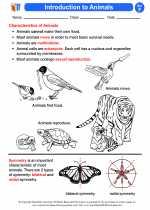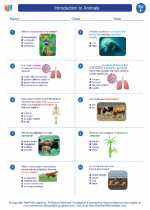Gametes
Gametes are the specialized reproductive cells that are involved in sexual reproduction. In humans, gametes are the sperm cells in males and the egg cells in females. These cells are responsible for the transmission of genetic material from one generation to the next.
Formation of Gametes
Gametes are formed through a process called meiosis. Meiosis is a type of cell division that reduces the chromosome number by half, resulting in the formation of haploid cells. In males, meiosis gives rise to four sperm cells, while in females, it produces one egg cell and three polar bodies.
Characteristics of Gametes
Gametes are unique in that they are haploid, meaning they contain half the number of chromosomes found in somatic cells. This is important for maintaining a constant chromosome number in sexually reproducing organisms. Additionally, gametes are also specialized for their role in fertilization, with sperm cells being motile and equipped with a tail for movement, while egg cells contain nutrients to support the developing embryo.
Role in Sexual Reproduction
Gametes play a crucial role in sexual reproduction. During fertilization, a sperm cell fuses with an egg cell, resulting in the formation of a zygote with a complete set of chromosomes. This zygote then develops into a new organism, inheriting genetic traits from both parents.
Study Guide
- What are gametes?
- How are gametes formed?
- What are the characteristics of gametes?
- What is the role of gametes in sexual reproduction?
◂Science Worksheets and Study Guides Sixth Grade. Introduction to Animals

 Activity Lesson
Activity Lesson
 Worksheet/Answer key
Worksheet/Answer key
 Worksheet/Answer key
Worksheet/Answer key
 Worksheet/Answer key
Worksheet/Answer key
 Vocabulary/Answer key
Vocabulary/Answer key
 Vocabulary/Answer key
Vocabulary/Answer key
 Vocabulary/Answer key
Vocabulary/Answer key
 Vocabulary/Answer key
Vocabulary/Answer key
